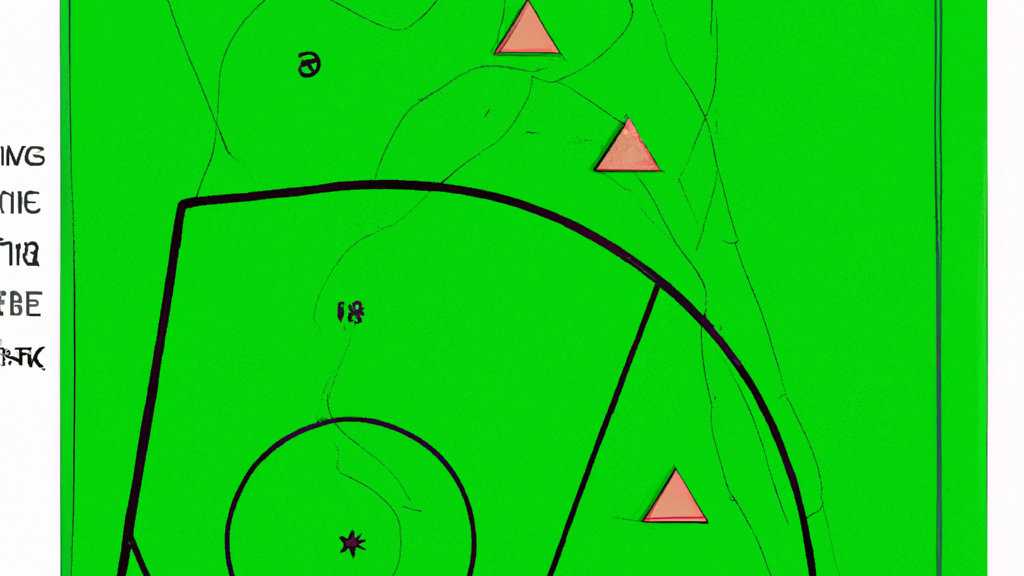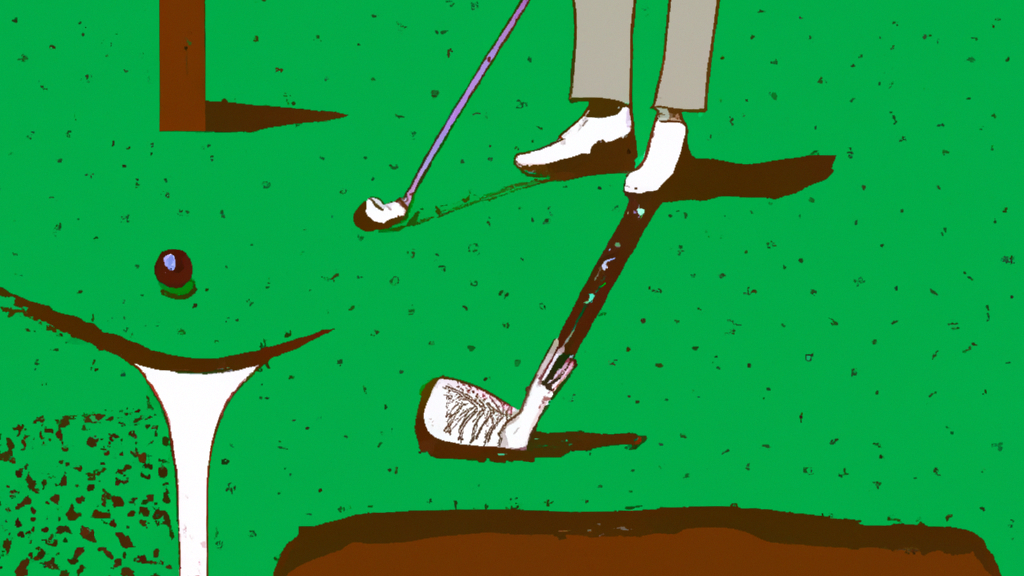MENTAL TOUGHNESS ON THE COURSE: DEVELOPING RESILIENCE AND PERSEVERANCE
Golf is a game of skill, strategy, and mental toughness. It’s not just about hitting the ball straight and far, but also about staying focused, resilient, and persevering through the ups and downs of the course. Whether you’re a beginner or a pro, developing mental toughness on the course can make a huge difference in your performance and enjoyment of the game. In this blog post, we’ll explore some tips and strategies for developing resilience and perseverance on the golf course, from managing your emotions and expectations to staying present and positive.
Whether you’re looking to improve your game, reduce your stress, or simply enjoy the beauty of the course, mental toughness is a key ingredient for success. So, let’s tee off and explore the world of mental toughness on the course!

Golf and Mental Toughness: Tips for Developing Resilience and Perseverance
Golf is a game of skill, strategy, and mental toughness. It requires a great deal of focus, patience, and perseverance to succeed on the course. Golfers who possess mental toughness are better equipped to handle the ups and downs of the game, and are more likely to achieve their goals. In this article, we will explore the concept of mental toughness on the course, and provide tips for developing resilience and perseverance.
What is Mental Toughness?
Mental toughness is the ability to remain focused, confident, and resilient in the face of adversity. It is a mindset that allows golfers to stay calm and composed under pressure, and to bounce back from setbacks. Mental toughness is not something that you are born with; it is a skill that can be developed through practice and experience.
Why is Mental Toughness Important in Golf?
Golf is a game of highs and lows. One moment you may be on top of the world, sinking a birdie putt, and the next moment you may be struggling to get out of a bunker. Golfers who lack mental toughness may become frustrated, lose focus, and make mistakes. This can lead to a downward spiral of poor shots and missed opportunities.
On the other hand, golfers who possess mental toughness are better equipped to handle the ups and downs of the game. They are able to stay focused on their goals, maintain their confidence, and persevere through difficult situations. This can lead to better performance on the course, and ultimately, more success.
Tips for Developing Resilience and Perseverance on the Course
- Set Realistic Goals
- Practice Resilience
- Stay Positive
- Embrace Challenges
- Practice Mindfulness
One of the keys to developing mental toughness on the course is to set realistic goals. This means setting goals that are challenging, but achievable. If your goals are too lofty, you may become discouraged when you don’t achieve them. On the other hand, if your goals are too easy, you may not feel a sense of accomplishment when you achieve them.
When setting goals, it’s important to focus on the process, rather than the outcome. For example, instead of setting a goal to shoot a certain score, set a goal to focus on your pre-shot routine, or to stay positive throughout the round. By focusing on the process, you can build confidence and momentum, which can lead to better performance on the course.
Resilience is the ability to bounce back from setbacks. In golf, this means being able to recover from a bad shot, a missed putt, or a lost hole. To practice resilience, it’s important to stay focused on the present moment, and to let go of mistakes and failures.
One way to practice resilience is to use visualization techniques. Before a round, visualize yourself hitting good shots, making putts, and recovering from bad shots. This can help build confidence and resilience, and can prepare you for difficult situations on the course.
Staying positive is essential for developing mental toughness on the course. Golfers who have a positive attitude are more likely to stay focused, maintain their confidence, and persevere through difficult situations. On the other hand, golfers who have a negative attitude may become discouraged, lose focus, and make mistakes.
To stay positive on the course, it’s important to focus on the things that you can control, such as your attitude, your pre-shot routine, and your mental preparation. It’s also important to avoid negative self-talk, and to focus on your strengths and abilities.
Challenges are a natural part of golf. Every round presents new challenges, whether it’s a difficult hole, a tricky pin placement, or challenging weather conditions. To develop mental toughness on the course, it’s important to embrace these challenges, rather than avoid them.
One way to embrace challenges is to view them as opportunities for growth and learning. Instead of becoming frustrated or discouraged, use difficult situations as a chance to test your skills, and to learn from your mistakes. By embracing challenges, you can build resilience and perseverance, and become a stronger, more confident golfer.
Mindfulness is the practice of being present in the moment, without judgment or distraction. In golf, mindfulness can help you stay focused, calm, and composed on the course. By practicing mindfulness, you can develop mental toughness, and improve your performance on the course.
To practice mindfulness on the course, it’s important to focus on your breath, and to stay present in the moment. Avoid distractions, such as negative thoughts, external noises, or other players. Instead, focus on your pre-shot routine, your swing, and your target. By staying present and focused, you can develop mental toughness, and achieve your goals on the course.
Conclusion
Mental toughness is a key component of success in golf. Golfers who possess mental toughness are better equipped to handle the ups and downs of the game, and are more likely to achieve their goals. By setting realistic goals, practicing resilience, staying positive, embracing challenges, and practicing mindfulness, you can develop mental toughness on the course, and become a stronger, more confident golfer.

- 23 Resilience Building Activities & Exercises for Adults
Mar 23, 2019 … Teaching Resilience Activities With Youth & Adults; Worksheets for Developing Mental Toughness; Resilience Training Activities and Exercising … - Cultivating Mental Toughness – SoulSalt
Mar 12, 2020 … Cultivating Mental Toughness: Learning to Persevere Against The Odds … how to build resilience, and how to get back on track after a … - Courses for Resilience & Perseverance – Skillsoft
Strength under Pressure: Building Perseverance and Resilience … In this course, you will learn to develop personal resiliency, adaptability, … - The Power of Staying the Course: Why Perseverance is Key to …
Dec 30, 2022 … This can help you to develop the mental strength and resilience that you need to persevere in the face of adversity. How To Stay the Course. One … - Resilience
specific coping strategies. Psychological research demonstrates that the resources and skills associated with more positive adaptation (i.e., greater resilience) … - Mental Toughness: The Key to Athletic Success
Grit, optimism, resilience, and perseverance are just a few factors that … forms of motivation due to the efforts they face to develop mental toughness. - Mental Toughness And Peak Performance: In Work, Leadership And …
Mar 14, 2023 … Developing a degree of mental toughness prepares us to be the best versions … service called the Mental Resilience Training Course (MRTC). - Neuroscientist: Do these 6 exercises every day to build resilience …
Aug 31, 2021 … … work on building your resilience and mental strength. … on your own resilience in order to persevere and maintain your well-being. - What Is Resilience? Definition, Types, Building Resiliency, Benefits …
It’s having the mental, emotional, and behavioral flexibility and ability to … Building resilience takes time, strength, and help from people around you; … - Developing Grit, Motivation, and Resilience: To Give Up on Giving In …
Jun 9, 2021 … Developing resilience in health care workers has been identified as a … Mental toughness and grit are the ability to persevere with …
Fun facts about Mental Toughness on the Course: Developing Resilience and Perseverance
- Golf is one of the oldest sports in the world, with its origins dating back to 15th century Scotland.
- The first recorded game of golf was played on March 26, 1297 by King James II of Scotland at Bruntsfield Links in Edinburgh.
- The term “caddie” comes from the French word “cadet,” which means younger son or assistant.
- In professional golf tournaments, players are not allowed to use a caddie who is also their spouse or family member.
- The longest hole in professional golf history was a par-7 that measured over 1,000 yards during an exhibition match between Mike Austin and Art Wall Jr. in Nevada in 1974.
- Golf balls were originally made out of wood until they were replaced by gutta-percha balls (made from tree sap) and eventually rubber-core balls around the turn of the century.
- Augusta National Golf Club, home to The Masters tournament every year since its inception in 1934, was once an indigo plantation before being converted into a golf course by Bobby Jones and Clifford Roberts





